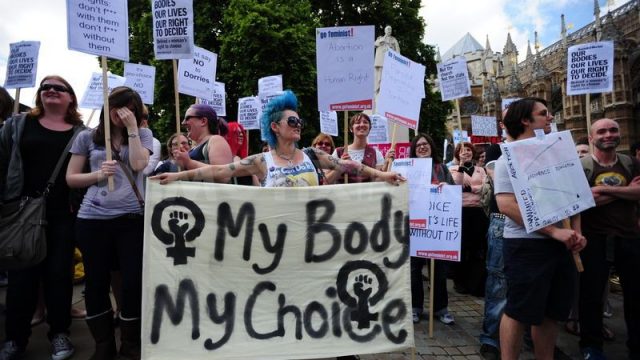Let's All Be Thankful That Abortion Rates Are Down

If there’s one thing both sides of the abortion debate supposedly agree on it’s that everybody wants fewer abortions.
Supposing that’s true, the news that the abortion rate is down across the country – both in states that have passed laws to restrict abortions and those that haven’t – should be seen universally as good news.
What’s causing the decline? There are a lot of explanations:
Abortion-rights advocates attribute it to expanded access to effective contraceptives and a drop in unintended pregnancies. Some foes of abortion say there has been a shift in societal attitudes, with more women choosing to carry their pregnancies to term.
Several of the states that have been most aggressive in passing anti-abortion laws – including Indiana, Missouri, Ohio, and Oklahoma – have seen their abortion numbers drop by more than 15 percent since 2010. But more liberal states such as New York, Washington and Oregon also had declines of that magnitude, even as they maintained unrestricted access to abortion.
I suspect that the explanations offered by both sides of the debate are probably correct to one degree or another.
On one hand, pro-life activists need to admit that education about safe sex is helping. Increased knowledge about contraception, and expanded use of it, is helping to prevent unwanted pregnancies. That’s a good thing. Further, that birth control carries less of a social stigma (I’m not sure you could say there’s any stigma at all today) is also helping. Also helping are shifting social attitudes about having children out of wedlock. I don’t think many today see it as an optimal situation, but it’s not the mark of shame it once was either.
On the other hand, pro-abortion activists need to admit that it’s becoming harder and harder to justify abortion as a necessity as preventing unwanted pregnancies has become easier. In generations past one of the emotional justifications for abortion was that of a woman dealing with unwanted pregnancies because she couldn’t access birth control, or was afraid to out of fear of being stigmatized.
But those conditions don’t exist today. Contraception is readily available for anyone who want it, even those who can’t pay. In 2015 if you get pregnant as a result of consensual sex, more than likely it’s a result of your own negligence, and I think a lot of Americans have a hard time with the idea of aborting unborn children as a sort of contraception.
In fact, I’d argue that it is the expansion of the availability of sex education and contraception that has kept American opposition to abortion relatively static even as attitudes on other social issues such as gay marriage and legalize marijuana have seen a dramatic shift.
As unwanted pregnancies become easier to prevent, I think many find the emotional justifications for abortion difficult to understand.




